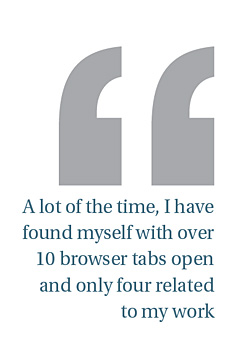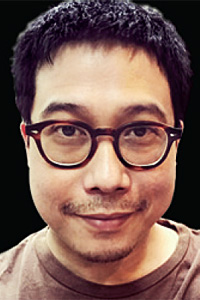Everybody knows the good and bad side of the internet and social media by now. Of course it's easy and very convenient to connect with people or access any information you want within seconds. But if abused, it can also be destructive.
Some two weeks ago, I woke at 9am and instinctively reached for my phone. I checked e-mail and my company's website to see how many people had liked the article I'd written the day before. I climbed out of bed, showered, and made a cup of coffee before checking social media again, both Facebook and Instagram. This is how I spend my life almost every day, and I'm certain that the same goes for almost everybody in the modern world.

We spend half our time each day scrolling through these social-media feeds, skimming information we have little interest in, like friends taking photos of their food. Someone we went to school with long ago is getting married; a famous celebrity couple has split up. And while these platforms are meant to make us more connected, they somehow deny us a touch of who we are. Before social media existed, we had actual conversations over meals and coffee; now everyone sits around scrolling through their phones, not talking to one another anymore, proving that social media is, in fact, making us antisocial.
As the report revealed, Bangkok is the city with the largest number of active Facebook users in the world. According to new data released by social-media management platforms We Are Social and Hootsuite, Bangkok is social media's most active city, with some 30 million people using the social network, which accounts for around 1.5% of its 1.96 billion users worldwide.
The report also reveals that last year Thailand came in the eighth place out of countries with the highest amount of Facebook users, with 47 million users; Instagram had 13.6 million users, and Twitter 12 million.
These numbers prove that social media sucks the productivity out of us. I need the internet to be useful, of course, but most of my web use doesn't feel healthy, and certainly isn't productive. A lot of the time, I have found myself with over 10 browser tabs open and only four related to my work. None of these tools help users manage their time effectively -- quite the reverse.
So I decided to quit social media that day, and also for the next two weeks to see how far I could go without using it. It was also around the time of Songkran when I planned to go for vacation at Koh Kood in Trat province for a week. So I thought this is the perfect time to detox my brain by logging off my social media accounts and trying to read as many books as possible.
To prepare for the trip, I spent my first week going to a few bookstores to buy a couple of fiction books. So during the trip, when I felt the urge to log in, I'd read a book instead. It could be great, I thought to myself. It had to be better than where I was.
The second week without accessing social media, I spent my quality time doing all kind of activities on Koh Kood such as reading, swimming and riding a motorcycle around the island to keep myself busy. Sometimes I noticed my muscle memory urging me to click on social-media apps on my phone, as Facebook had e-mailed me five times to tell me I had around 50 notifications, or how I yearned to see who had sent me friend requests. My mind started to convince me that I could have just taken one look, then restarted the experiment tomorrow, but I resisted, turned off my phone, and picked up a Stephen King book instead.
It was quite difficult at first, perhaps because I've been using social media non-stop for more than a decade. But this "social media twitch" happened progressively less frequently throughout the week. And by the end of the vacation, my social-media habit had almost completely gone, and I'd read three books and two magazines.
From the experiment in the past two weeks, I've learned that it's not that hard to get off social media sometimes. The hardest part is the part we all ignore -- that we are too addicted, and too distracted, to do what we all know is more important.
The theory is simple; it's the execution that's hard. Although, I wouldn't say I'm perfect at it yet, and I may go back to my bad habits again soon, at least now I've learned some tactics that have helped me get results.
Tatat Bunnag is a feature writer for the Life section of the Bangkok Post.
